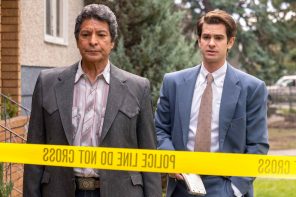This week, LDS Church leaders apologized for the unauthorized proxy baptism of the parents of Holocaust survivor and Nazi hunter Simon Wiesenthal and punished Mormons responsible for the violation of the Church’s policies against posthumous baptism of Holocaust victims, while Nobel Laureate Elie Wiesel called on presidential candidate Mitt Romney to intervene in the situation.
(Wiesel’s name was also located in the LDS genealogical database by Salt Lake City-based watchdog Helen Radkey, but Church officials clarified that the names of Mr. Wiesel and his relatives were never submitted for baptism.)
This post has been updated – Eds
These incidents have reignited a long-simmering controversy over the LDS practice of baptism for the dead. Mormons view posthumous baptism as a demonstration of care and respect for ancestors, and they emphasize that the rites are ineffectual unless accepted by the souls of the dead. (Good secular explanations of baptism for the dead are also here and here.)
But Mormon theological reasoning means little to Jews and others who view the performance of an unsolicited religious ritual over an individual name as a violation. For Jews, the fact that the religious ritual is a baptism connects with forced baptisms of Jews dating back to fourth-century Rome and other historical persecutions by Christians. Further, the idea of having one’s name “inscribed in the Book of Life” carries deep theological and cultural significance among Jewish people. Given the historical and religious context, it is understandable that Jews would view having their ancestors’ names inscribed in Mormon temple records as a particular affront.
Jewish and LDS Church officials reached an accord in 2010 that was supposed to have protected the names of Holocaust victims from proxy baptism. According to the terms of the accord, as reported in the Deseret News:
Church members are now asked to certify that their submissions for proxy baptisms meet church policy. Should any inappropriate submissions be identified, the new system allows the record of the baptism to be removed from the public database and the submitters are contacted to ensure such errors are not repeated. To that end, church staff also regularly search records to identify inappropriate submissions and prevent such baptisms from being performed.
In practical terms, this means that users who accesses the LDS “Family Search” genealogy database today must scroll through a list of policies including the proviso that names of “Jewish Holocaust victims” should not be submitted by non-family members, and then must indicate that they are in keeping with policy when they submit names for proxy rites.
But violations continue, and they are a source of great shame and embarrassment. Perhaps more can be done. Listening in on conversations among Mormons this week, I’ve heard important ideas bubbling up from within the community about how to instill greater accountability:
- What if LDS Church members who use the Family Search database to submit names for proxy religious rites were required to complete an annual online training with explicit instructions and penalties for inappropriate submission of names?
- What if LDS Church members who use the Family Search database were required to provide an electronic signature each time they submitted names for proxy religious rites acknowledging that they agreed to forfeit access to the database if they were found in violation of the policy?
- What if high-volume submitters were randomly audited for documentation of direct ancestral ties to the names they submitted for baptism, on penalty of being denied access to the database, or worse?
- What if letters were read in LDS Sunday meetings stressing the importance of the no-baptize policies, or talks given at LDS meetings by ranking Church officials stressing respect for the sanctity of the no-baptize policies?
- What if the Church crowdsourced efforts to monitor databases for the names of Holocaust victims?
These steps may not address the deeper objections people of other faiths have to proxy baptisms, but would demonstrate a deeper commitment on the part of Mormons to respecting the memory of the Wiesenthal family and other Holocaust victims.




